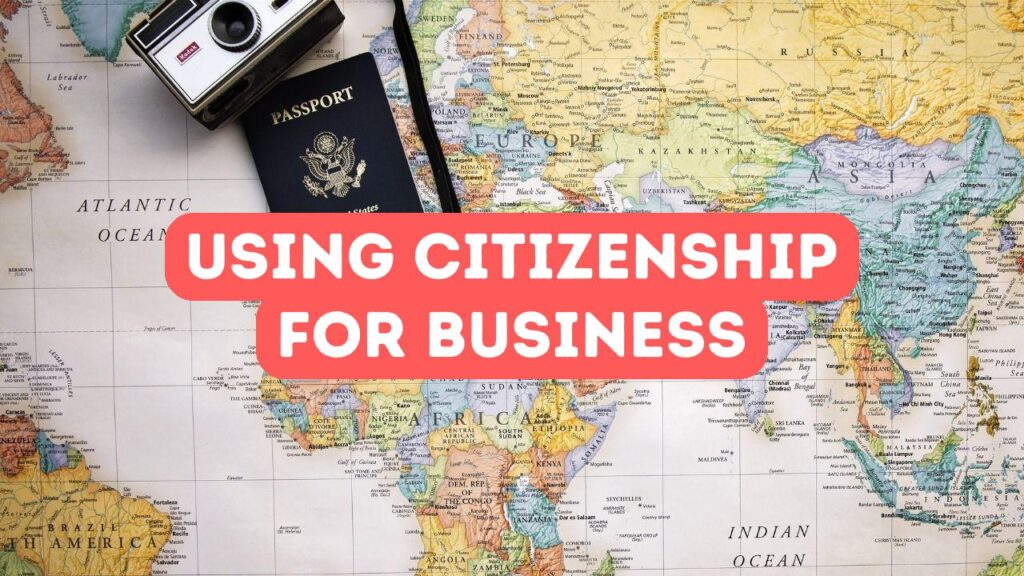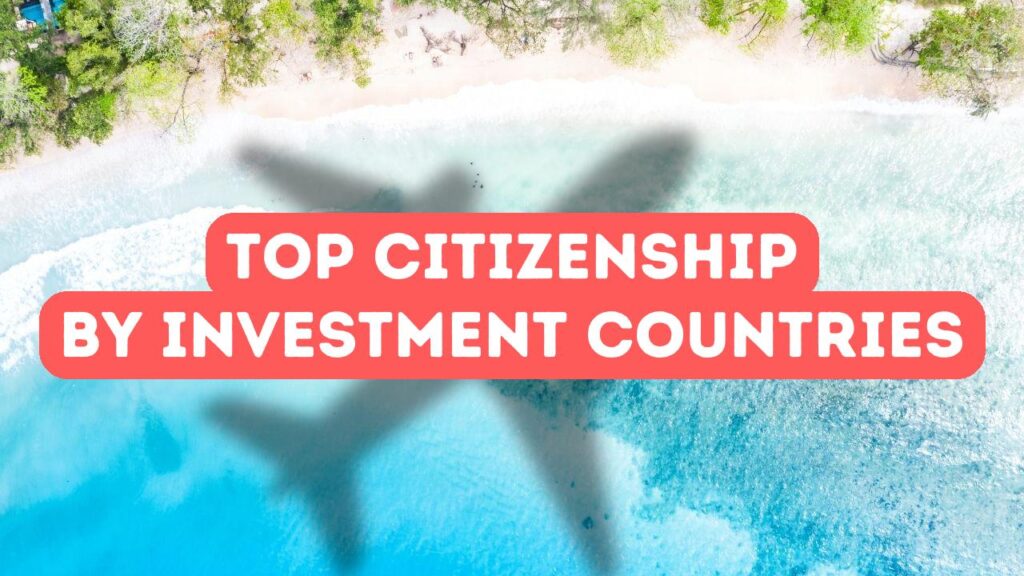In the increasingly interconnected global economy, securing a second citizenship through investment offers more than personal freedom and security; it opens new frontiers for business expansion. For entrepreneurs and business leaders, leveraging citizenship by investment can serve as a strategic move to access emerging markets, benefit from favorable tax regimes, and enhance international credibility. By obtaining citizenship in a business-friendly nation, you can tap into infrastructure, legal frameworks, and financial ecosystems that can drive your business growth to new heights. This article will explore how to effectively utilize your citizenship by investment to unlock myriad opportunities for business expansion, ensuring a robust and diversified international presence.
Understanding Citizenship by Investment Programs
Citizenship by investment programs are government initiatives that allow foreign nationals to obtain citizenship in exchange for making a significant economic contribution to the host country, typically through investment in real estate, government bonds, or business ventures. These programs are designed to attract affluent individuals who can bring substantial capital into the nation, fostering economic growth and development. By acquiring citizenship in another country, investors gain access not only to the benefits of the new nationality but also to the strategic advantages that come with being a bona fide citizen, such as visa-free travel, better business opportunities, and potentially more favorable tax regimes. Understanding the intricacies of these programs, including the financial requirements, processing times, and specific regulations of each country, is crucial for making an informed decision that aligns with your business goals.
Different countries offer varying levels of benefits and requirements for their citizenship by investment programs, and selecting the right one can have a profound impact on your business strategy. For instance, some nations in the Caribbean, like Grenada and St. Kitts and Nevis, offer relatively streamlined processes and affordable options that include the added benefit of enhancing your company’s global mobility with extensive visa-free access to various countries. In contrast, European programs such as those in Portugal and Malta often demand higher investments but provide entry into the European Union’s vast market, which can be particularly advantageous for businesses looking to expand operations or establish partnerships within the EU. To make the most of these opportunities, it is essential to conduct a thorough comparative analysis to find a program that best aligns with your professional objectives, risk tolerance, and long-term vision for business expansion.
Moreover, understanding the potential drawbacks and challenges associated with citizenship by investment programs is equally important. While these programs offer significant business advantages, they also come with their own set of complexities and risks. Potential issues can include stringent due diligence processes, geopolitical instability, and fluctuating investment requirements, which can impact both the cost and feasibility of obtaining second citizenship. Furthermore, each country’s tax regime may have implications for your existing financial structure, requiring careful planning and expert advice to navigate effectively. By recognizing these challenges and preparing for them, you can better position yourself to leverage your new citizenship as a strategic asset, ensuring that your business expansion efforts are both compliant and optimally structured.
Maximizing Business Opportunities with New Citizenship
Acquiring a second citizenship through investment can significantly broaden your business horizons by providing access to new and dynamic markets. This strategic move enables business owners to capitalize on favorable economic conditions, enhanced trade relations, and lucrative investment opportunities that may not be available in their home countries. Moreover, a new citizenship can facilitate smoother and faster setup of business operations, thanks to streamlined administrative procedures and supportive government policies. By holding citizenship in a country renowned for its business-friendly environment, you gain the flexibility to navigate regulatory landscapes more efficiently, forge strategic partnerships, and tap into a wealth of local resources and talent, thereby positioning your enterprise for sustainable growth.
Furthermore, new citizenship can provide access to an array of financial instruments and incentives that can be critical for business expansion. Many countries that offer citizenship by investment programs also boast robust banking systems, access to international capital markets, and competitive financing options tailored for business growth. This financial leverage can be harnessed to invest in innovative technologies, expand your product or service offerings, and scale operations more effectively. Additionally, beneficial tax regimes and bilateral treaties on tax regulations can significantly reduce the financial burdens on your business, allowing you to reinvest more capital into your company’s growth initiatives. By strategically utilizing the financial advantages that come with your new citizenship, you can enhance profitability and establish a more resilient and diversified business portfolio.
Lastly, securing a second citizenship can greatly enhance your business’s international credibility and brand perception. A globally recognized citizenship can help you build trust with international clients, investors, and business partners, facilitating easier entry into new markets. It can also enable you to participate in international trade shows, business forums, and networking events that would otherwise be less accessible, thereby expanding your professional network. Furthermore, it can give you the legal standing necessary to protect your intellectual property rights and investment in multiple jurisdictions, providing a layer of security that can be pivotal in global business operations. By leveraging the enhanced reputation and expanded access that comes with a new citizenship, you can position your business as a globally competitive entity, capable of navigating the complex and multifaceted landscape of international trade and commerce.
Legal Considerations for International Business Expansion
When leveraging citizenship by investment for business expansion, understanding the legal landscape of your new country is crucial. Different countries offer various legal frameworks that can either facilitate or hinder your business operations. Key factors to consider include corporate governance regulations, compliance requirements, and intellectual property laws. Thoroughly researching and aligning your business practices with local laws can prevent legal complications and ensure smooth operation. Moreover, engaging with local legal experts can provide invaluable guidance, helping you navigate complex legal terrains and take full advantage of any bilateral trade agreements or investment treaties the country may be party to. This legal foresight not only safeguards your business but also enhances its potential to thrive in a new jurisdiction.
Another essential legal consideration is understanding the tax implications and incentives that come with your new citizenship. Many countries offering citizenship by investment have competitive tax regimes designed to attract foreign investors. These can include lower corporate tax rates, exemptions on capital gains, and favorable double taxation treaties with other nations. It’s important to conduct a thorough analysis of these tax benefits to determine how they can positively impact your business operations and overall profitability. By strategically positioning your business in a jurisdiction with advantageous tax laws, you can enhance your company’s financial health while complying with international tax standards. Consulting with tax advisors who specialize in international business can provide tailored insights, ensuring you maximize these benefits while minimizing risks.
Equally important are the labor and employment regulations in your new country of citizenship. Understanding these regulations helps you effectively manage workforce-related matters such as hiring practices, employee benefits, and labor rights, ensuring compliance with local labor laws. Developing a keen awareness of minimum wage requirements, working conditions, and employment contract stipulations can mitigate potential legal disputes and foster a positive working environment. Access to a skilled and adaptable workforce can be a significant asset, supporting your company’s growth and operational efficiency. Additionally, many countries offer incentives for businesses that create jobs, so aligning your employment strategy with these policies can further enhance your business prospects. By thoroughly understanding and adhering to labor regulations, you can build a sustainable and responsible business presence in your new jurisdiction.







